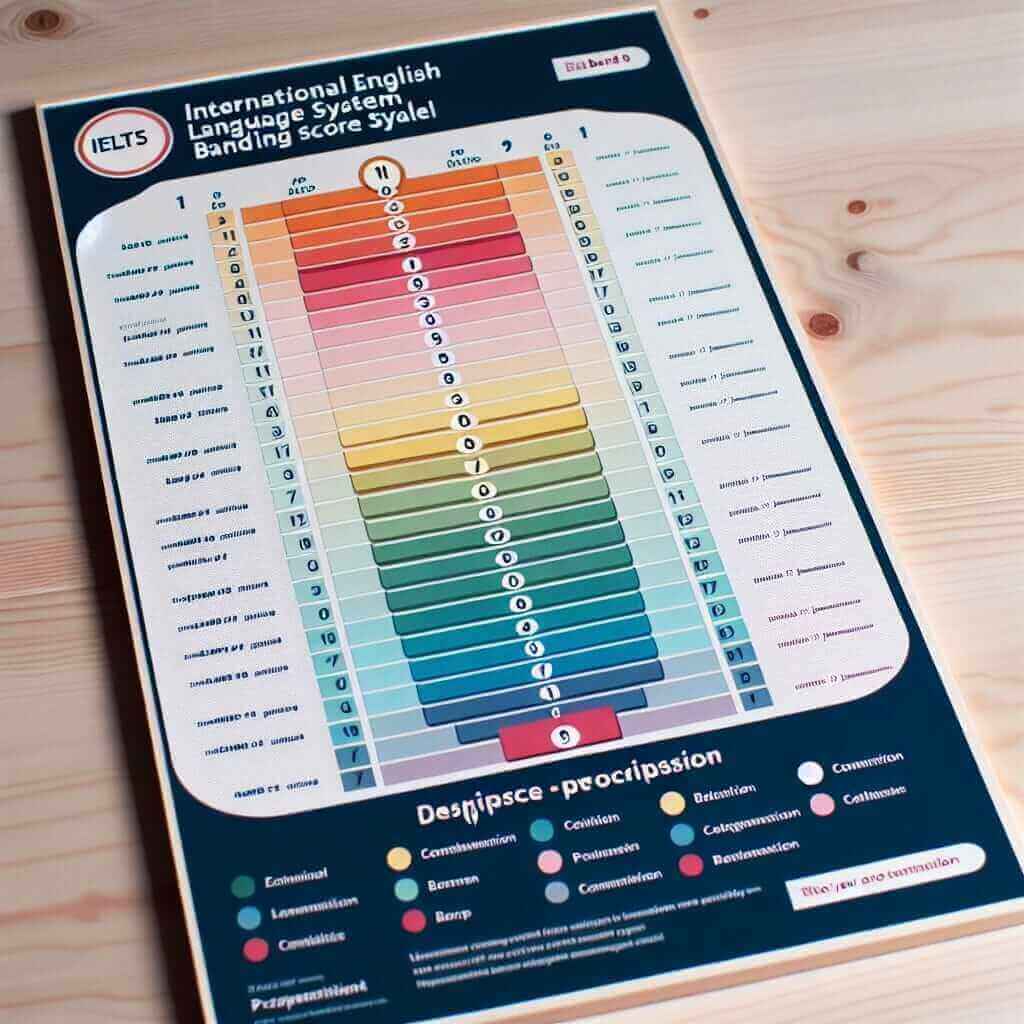The IELTS (International English Language Testing System) is an English language proficiency test used by non-native English speakers who wish to study, work or migrate to countries where English is the primary language of communication. The IELTS test measures a candidate’s ability in four key areas: Listening, Reading, Writing, and Speaking. The results are scored on a band scale of 1 to 9, with each band representing a level of English proficiency.
Why IELTS Band Requirements Matter
For students aiming to pursue higher education abroad, the IELTS band requirement is a crucial consideration. Universities and colleges use IELTS scores to determine whether an applicant has the necessary English language skills to succeed in their academic programs. Meeting the IELTS band requirement is typically a prerequisite for admission, and in some cases, for scholarship eligibility and visa approval.
Understanding IELTS Band Requirements
What is the Minimum IELTS Band Requirement?
The minimum IELTS band requirement varies by country, institution, and program. Generally, universities in English-speaking countries like the UK, USA, Canada, Australia, and New Zealand require an overall band score of 6.0 to 7.5. Specific requirements may differ based on the level of study (undergraduate, graduate, or doctoral) and the field of study.
Examples by Country and Institution
United Kingdom:
- University of Oxford: Typically requires an overall band score of 7.0, with at least 6.5 in each component.
- King’s College London (KCL): Generally requires a 6.5 overall score, with no less than 6.0 in any component.
United States:
- Harvard University: Requires a minimum band score of 7.0.
- University of California, Berkeley (UC Berkeley): Often asks for a 6.5 minimum score.
Canada:
- University of Toronto: Typically requires an overall band of 6.5.
- McGill University: Requires an overall band score of 6.5, with no component less than 6.0.
Examples to Illustrate
- Listening: If you are aiming for a score of 7.0 or above, you should correctly answer at least 30 out of 40 questions in the Listening section.
- Reading: For a band score of 7.0, you should aim to answer around 30 out of 40 questions accurately.
- Writing: A band 7.0 essay should present a clear position with well-developed ideas, proper grammar, and a range of vocabulary without noticeable mistakes.
- Speaking: To score a 7.0, you must speak fluently with minor errors and demonstrate a solid range of vocabulary and grammatical structures.

Applying IELTS Knowledge to Actual Tests
- Listening and Reading: Practice past IELTS Listening and Reading tests to get accustomed to the question types and time management.
- Writing: Work on Task 1 and Task 2 essays by responding to IELTS prompts. Focus on coherence, cohesion, grammar, and task achievement.
- Speaking: Participate in mock Speaking tests with a teacher or language partner to gain confidence and receive feedback.
Common Mistakes to Avoid
- Misunderstandings in Task Requirements: Ensure you understand the essay task completely before starting to write.
- Pronunciation Issues: Work on pronunciation to avoid misunderstandings during the Speaking test.
- Time Management: Allocate your time wisely for each section to avoid rushing at the last minute.
- Neglecting One Component: Balance your preparation across all four test components.
Effective Practice Strategies
- Simulated Tests: Regularly take full-length practice tests to simulate real test conditions.
- Targeted Practice: Focus on your weaker areas but also reinforce your strengths.
- Feedback and Review: Analyze your performance and seek feedback from instructors to correct mistakes.
- Consistent Practice: Daily practice is essential for gradual improvement and retention.
Conclusion
Preparing for the IELTS test can be a rigorous process, but understanding the specific band requirements for studying abroad can guide your preparation effectively. Aim to meet and exceed the minimum band scores required by your chosen institutions and remember to balance your efforts across all four test components. Pursuing an organized and consistent study plan will increase your chances of achieving the desired band scores and fulfilling your academic ambitions abroad.
Feel free to leave comments or questions below, and explore our website for more resources on IELTS preparation. We wish you the best of luck in your IELTS journey!